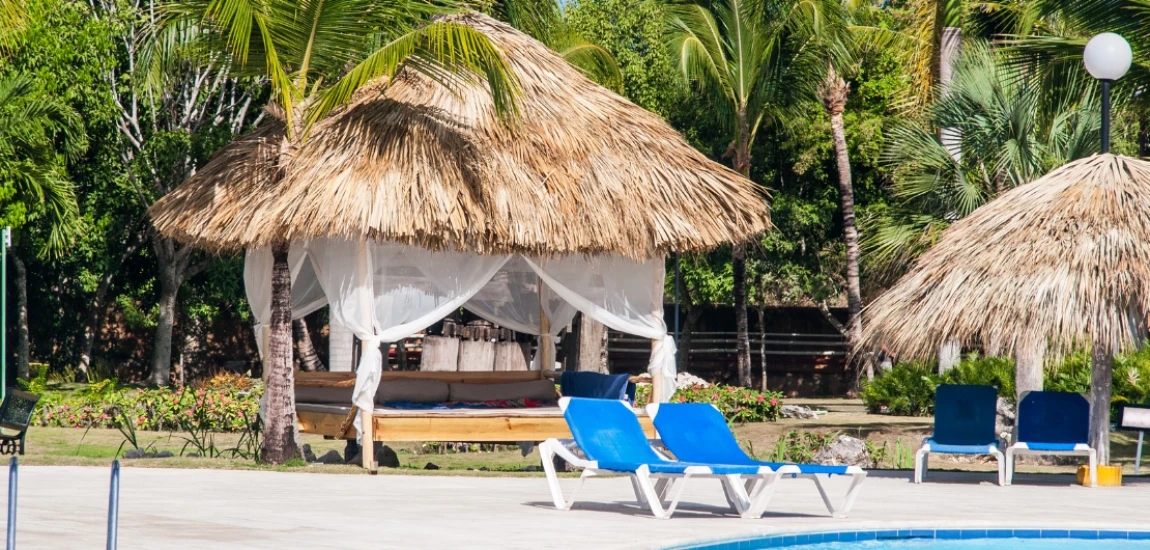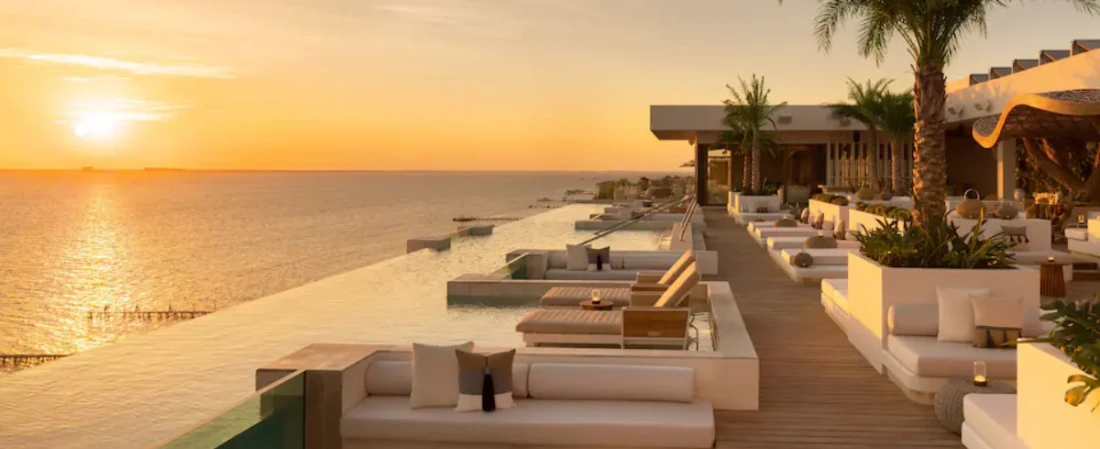
In the past, all-inclusive resorts were mostly associated with standalone properties in destinations like the Caribbean or Mexico. They catered largely to budget-conscious travelers looking for a hassle-free vacation. Fast-forward to 2025, and the scene has changed dramatically.
Major hotel brands such as Marriott International, Hilton, and Hyatt Hotels Corporation have expanded aggressively into the all-inclusive market. These brands are bringing with them standardized service models, loyalty programs, and brand credibility. But with this entrance, the question arises—are these hotel giants actually elevating the all-inclusive experience, or just repackaging old formulas under big names?
Unlike traditional stays, the all-inclusive model bundles lodging, meals, drinks, activities, and sometimes even airport transfers. It sounds ideal in theory, but execution matters. Travelers today are savvy and expect more than just a buffet and watered-down cocktails. They want gourmet dining, personalized service, quality entertainment, and flexible experiences.
This blog explores how well major hotel brands are adapting to the expectations of modern all-inclusive travelers. We will analyze the approaches of Marriott, Hilton, and Hyatt, examining how their properties perform in terms of value, service, and consistency. This is not a surface-level discussion. We dig deep into property portfolios, customer satisfaction ratings, pricing strategies, and loyalty integration.
By the end, you’ll know exactly whether big hotel brands are getting all-inclusive resorts right—and if it’s worth booking your next stay under one of their umbrellas.
Marriott entered the all-inclusive game through strategic acquisitions, most notably the Playa Hotels & Resorts partnership. The brand now operates under its Autograph Collection, Luxury Collection, and Westin brands in the all-inclusive segment, offering a spectrum from upscale to ultra-luxury.
Marriott's strategy is centered on leveraging brand familiarity. Whether it’s the Caribbean or Mexico, customers know what to expect from a Westin or Luxury Collection property. This continuity builds trust. But in reality, performance varies greatly depending on the property and management.
One key differentiator for Marriott is its tiered experience. At its high-end properties, such as the Royalton Antigua (Autograph Collection), guests enjoy gourmet à la carte dining, premium liquor, full-service spas, and 24-hour room service. But not all properties live up to these expectations. Mid-tier options often face complaints around food quality and staff attentiveness.
According to verified reviews across platforms like TripAdvisor and Booking.com, guests frequently highlight modern room design and excellent Wi-Fi. But criticisms often involve inconsistencies in service, overbooking issues, and underwhelming buffet options. Some guests noted that while the Marriott name raised expectations, delivery didn’t always match.
Marriott Bonvoy is one of the most robust loyalty programs globally. But redemption rates for all-inclusive stays are often higher, and elite benefits like room upgrades or late checkouts are inconsistently applied. Moreover, Bonvoy points for stays at all-inclusives offer less value compared to standard hotel stays.
Marriott’s all-inclusive expansion has potential, but standardization remains a challenge. Some properties deliver a five-star experience while others struggle to meet even basic expectations. Marriott needs to invest more in training, culinary innovation, and consistent brand standards to fully satisfy discerning travelers.

Hilton’s foray into the all-inclusive space leans heavily on its Hilton Hotels & Resorts and Curio Collection brands, with a focus on family-friendly properties in Mexico, the Caribbean, and Central America.
Many Hilton all-inclusive resorts cater to multigenerational travelers. Properties like the Hilton Cancun, an All-Inclusive Resort, offer kids’ clubs, teen lounges, and family suites. The food options typically include kid-friendly menus and buffets, with multiple à la carte restaurants for adults.
Hilton promotes clean, consistent design and above-average amenities, including modern gyms, spa services, and beach clubs. The difference lies in the execution of soft services like staff engagement, entertainment quality, and restaurant rotation.
However, unlike Marriott, Hilton doesn’t yet have a luxury-focused sub-brand in the all-inclusive space, which limits its appeal to high-end travelers. Most of its resorts fall into the mid-range to upper-mid-range category.
Guest feedback for Hilton all-inclusives often praises friendly staff and cleanliness. However, complaints include long wait times at restaurants, inconsistent room service, and limited options for vegetarians or vegans. Entertainment options are often described as “safe but predictable,” lacking local cultural depth.
Hilton Honors members do earn points and can redeem for free nights, but redemptions require high point levels, and perks such as room upgrades are not consistently offered at all-inclusive properties. Unlike standard Hilton properties, free breakfast (already included) and executive lounge access become irrelevant, reducing the value of elite status.
Hilton’s strength lies in delivering a reliable, family-friendly experience at competitive prices. But it lacks the luxury finesse or experiential variety that modern travelers increasingly seek. For budget-conscious families, Hilton delivers, but for couples or solo travelers seeking luxury, it may fall short.

Hyatt’s boldest move in the all-inclusive world came with its acquisition of Apple Leisure Group (ALG), which includes brands like Zoëtry, Secrets, Dreams, and Alua. The move gave Hyatt instant access to over 100 all-inclusive properties across the Americas and Europe.
What sets Hyatt apart is its multi-tiered approach:
Zoëtry Wellness & Spa Resorts for ultra-luxury wellness travel
Secrets Resorts & Spas for romantic adults-only stays
Dreams and Now Resorts for family vacations
Sunscape Resorts for affordable getaways
Each sub-brand has its own identity, allowing Hyatt to cater to multiple demographics effectively. That’s a big win for guests looking for specific types of vacation experiences.
Hyatt Inclusive Collection scores the highest overall ratings on sites like Expedia and Google Reviews. Guests highlight exceptional service, high-quality dining, and beautifully maintained properties. In particular, Secrets and Zoëtry properties receive rave reviews for staff attentiveness and culinary excellence.
Perhaps the most effective loyalty integration in the all-inclusive space comes from Hyatt. World of Hyatt members can:
Redeem points at a fair rate (starting at 20,000 points/night)
Access elite perks like spa discounts and preferred dining reservations
Earn elite status quickly through stays
Hyatt has also ensured loyalty benefits are well communicated and honored, which significantly improves repeat business.
Hyatt has leaned into sustainability and wellness trends more effectively than competitors. Zoëtry resorts, for example, include organic cuisine, hydrotherapy, and holistic spa services. This resonates strongly with health-conscious travelers post-pandemic.
Hyatt’s Inclusive Collection offers the most complete, varied, and consistent all-inclusive experience among major brands. Whether you’re a couple, a family, or a solo luxury traveler, Hyatt has a tailored experience that delivers.

To assess whether major hotel brands are doing it right, it’s crucial to understand what today’s travelers value most in an all-inclusive vacation.
Dining Quality & Variety
Modern guests want more than buffets. They expect gourmet restaurants, dietary accommodations, and drink menus that include premium wines and cocktails.
Service Consistency
Prompt room service, friendly staff, concierge availability, and efficient check-ins all contribute to the overall experience. Hyatt stands out in this area, while Hilton and Marriott often receive mixed feedback.
Unique Activities & Entertainment
Cookie-cutter shows and generic activities no longer cut it. Cultural excursions, wellness classes, and immersive entertainment are preferred.
Pricing Transparency
Surprise fees and unclear inclusions frustrate guests. Brands that clearly define what’s included (like Hyatt and Hilton) tend to have happier customers.
Room Quality
Modern rooms with fast Wi-Fi, good air conditioning, and soundproofing matter. Marriott often excels in this area, though Hilton rooms are typically family-oriented.
Loyalty Integration
Guests loyal to hotel brands expect their benefits to transfer. Hyatt leads the pack, with clear redemption structures and fair elite recognition.
Hyatt offers the best value for luxury experiences
Hilton provides reliable, affordable options for families
Marriott is stuck in the middle—some properties shine, others underdeliver
For the same budget, a savvy traveler may get a dramatically different experience depending on which brand they choose. That’s why brand alone is no longer a guarantee of quality in the all-inclusive sector.

So, are major hotel brands truly doing all-inclusive resorts right?
The answer: It depends on the brand, property, and guest expectations.
Marriott is still finding its footing. While it offers premium design and branding, service inconsistencies and a lack of unique experience often weaken its delivery. Loyalty benefits are average, and luxury is limited to select properties.
Hilton succeeds in providing affordable, family-friendly vacations. But its offerings feel safe and lack the innovation or luxury touches modern travelers increasingly seek. Service is friendly but sometimes inefficient, and elite recognition is spotty.
Hyatt clearly emerges as the industry leader. Its Inclusive Collection is tailored, innovative, and guest-centric, offering standout value, reliable service, and top-tier loyalty integration. Whether you're traveling for wellness, romance, or family fun, Hyatt delivers on the all-inclusive promise with consistency.
The future of the all-inclusive resort experience lies in flexibility, transparency, and personalization. Travelers no longer want cookie-cutter vacations. They seek quality food, immersive activities, and meaningful service. Hotel brands must evolve from standardized packages to customizable, experience-driven offerings.
In this regard, Hyatt is setting the pace. Hilton and Marriott can catch up—but only if they invest in service training, streamline their loyalty offerings, and better align property experiences with modern guest desires.
For now, brand-conscious travelers looking for a top-tier all-inclusive vacation would be wise to start with Hyatt.
Lina Zhou is a globe-trotting travel writer from Chengdu, China. With a passion for hidden gems and cross-cultural experiences, she shares practical tips, visa guidance, and immersive stories from every corner of the world. When not exploring, she’s sipping tea while planning her next adventure.